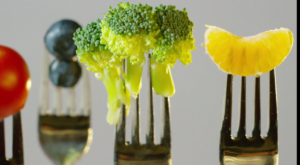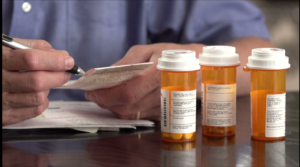
How does blood pressure medication compare to lifestyle modifications when it comes to lowering blood pressure? Lifestyle modification alone very effectively lowers blood pressure, but if the level is severe, you will likely require antihypertensive medication. If you do not use any lifestyle modification, you will probably need more antihypertensive medication to get to your target blood pressure goal.
The average person with hypertension will require two medications to reach their target blood pressure goal. There are certain medications that are more effective than others in certain people, and there are first-line medications that are important to initiate. Severe side effects from antihypertensive medication are not as common as you would think. Nevertheless, side effects may cause medication non-adherence.
Did you know that about 25-50% of patients with hypertension are not taking their medications as prescribed by their health care provider? I conducted a small study that included police officers who participated in a wellness program to improve their health. The majority of these workers were men who had insurance and who were motivated to improve their health. However, about 25% of them did not take their blood pressure medication as prescribed.
Most people do not want to take blood pressure medication for the rest of their lives. So, this is one reason why they might be resistant to taking blood pressure medication, which is also called anti-hypertension medication. Another reason some people are resistant to taking blood pressure medication is that they are afraid of experience serious side effects of anti-hypertensive medication.

After careful review of the available research, the committee that developed the new hypertension guidelines recommended a lower target goal blood pressure. A lower target blood pressure encourages early non-medication treatment to decrease blindness, strokes, heart attack, heart disease, and kidney disease. Research has shown that it is more effective to treat high blood pressure (hypertension) early with lifestyle modification rather than to wait until blood pressure goals reach 135/85 mm Hg at home.
Years later, I conducted another study where I found that patients appeared to be inadequately treated with medications for their blood pressure. Yet, they reported a high level of medication adherence. It’s nothing like taking your medication as prescribed and still have risks for poor health outcomes.
It makes sense to measure blood pressure at home where it is more accurate and adapt lifestyle modifications to get to your target blood pressure goal. Lifestyle modifications can work overtime. It is worth trying without medications as long as your blood pressure is not moderately or severely elevated. Your risk profile will be considered when deciding which treatment is most appropriate. Use the Arteriosclerotic Cardiovascular Disease (ASCVD) risk estimator tool to determine your risk profile. Risk discussion of ASCVD age, treated blood pressure, smoking history and will give a 10-year risk.

Effective anti-hypertensive medication is known to decreases blood pressure on average 7 to 10 mm of mercury. A low-fat whole foods diet high in fruits and veggies, and low in meats and dairy can reduce blood pressure about 11 mm Hg. A low salt diet can reduce your blood pressure 5 to 6 mm Hg. Eating a diet high in potassium (i.e., bananas, melons, sweet potatoes, white beans, beet greens, and avocadoes) can reduce your blood pressure by 4-5 mm Hg.90-150 minutes of walking can reduce your blood pressure about 5 to 8 mm Hg. Resistance training of 6 exercises including 3 sets each exercise and 10 repetitions a set can reduce your blood pressure 4 mm Hg.
Lifestyle modification usually works overtime. Severe blood pressure needs immediate action which is usually medication. Moderately high blood pressure may need medication: so contact your health care provider for guidance. Moderately high blood pressure combined with high risk may require immediate actions with antihypertensive medication. Nevertheless, slightly elevated blood pressure could be treated with lifestyle modification, but high-risk patients may need to be treated immediately. Otherwise, lifestyle modification alone may be effective.
Resources
Arteriosclerotic Cardiovascular Disease (ASCVD) Risk Estimator. Retrieved from
http://tools.acc.org/ASCVD-Risk-Estimator-Plus/#!/calculate/estimate/
(2017). Guideline for the prevention, detection, evaluation, and management of high blood pressure. Retrieved from https://www.acc.org/~/media/Non-Clinical/Files-PDFs-Excel-MS-Word-etc/Guidelines/2017/Guidelines_Made_Simple_2017_HBP.pdf